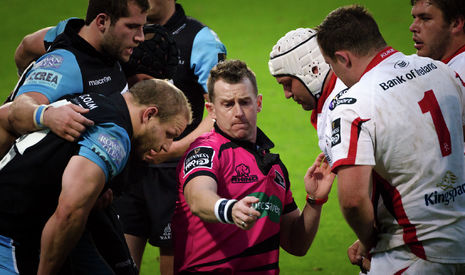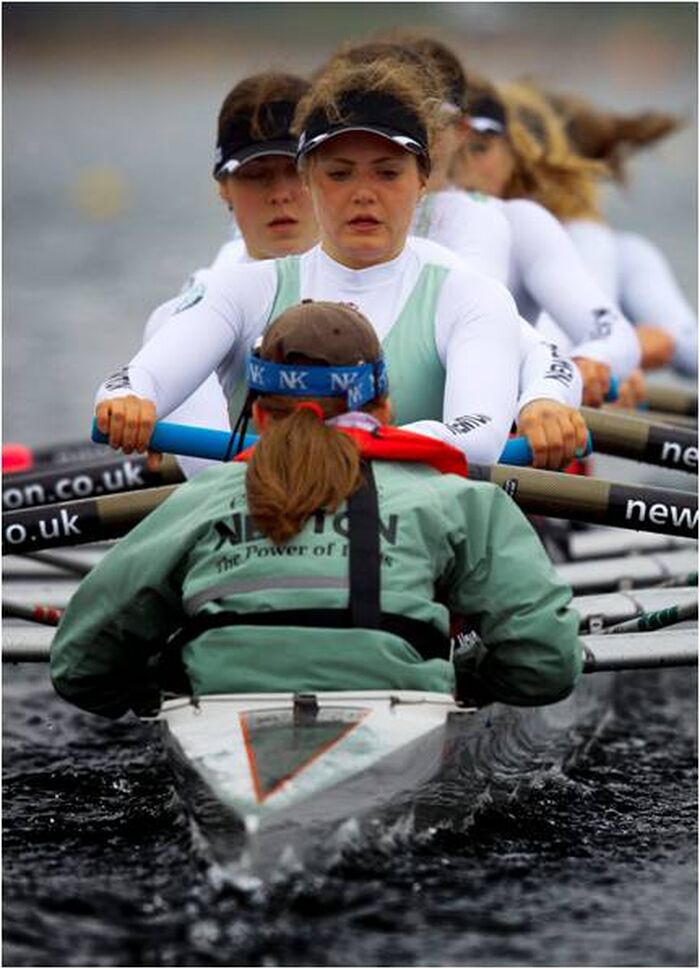My Sporting Hero – Nigel Owens
Taking a critical look at the slow rate of change in rugby union, Anna Stirk explains the positive impacts of Nigel Owens’ coming out on both the LGBT+ community and the wider community within the sport.

Nigel Owens is one of the best referees in rugby union history by any metric. Standing out as a match official tends to be a negative attribute – which other referees have ‘best moments’ compilation videos with more than a million views? In this case, however, it is invariably a positive for the promotion of the sport. Owens’ popularity among rugby fans stems from his effectiveness on the pitch and his renowned one-liners that form the bulk of the previously mentioned YouTube clips; he manages the game with humour yet is cautious on the whistle. However, as has become increasingly clear, the value of an athlete is about more than their sporting ability. Rather, it is about their contribution to the community of their sport with the voice and platform they have.
“The value of an athlete is about more than their sporting ability.”
Owens became one of the first three professional Welsh Rugby Union referees in 2001 and progressed to referee his first Rugby World Cup match in 2007. However, perhaps more significantly in that year, he came out as gay. Although he is not the first men’s rugby player to do so, he has arguably had the greatest impact on the conversation surrounding LGBT+ people in rugby in the northern hemisphere in the past two decades. Several players and officials have come out in recent years but still no more than ten in total in the top-flight men’s game.
Discussions on mental health issues in the wider society have also come a long way in the past twenty years. Rugby still, however, retains the tendency to project a ‘strong and silent’ image – particularly among professionals. Owens has contributed to the advancement of this dialogue through frank conversations about his own experiences with depression and bulimia – issues that have troubled him at events as recent as the 2015 World Cup, as he refereed the final between New Zealand and Australia. Yet it is not merely contribution to these discussions that has made a difference, but it is his refereeing record and the respect he holds in the rugby community that enables him to make a difference.
Owens retired from international refereeing in December 2020, having officiated a record of 100 Test matches, and his legacy lives on. Several rugby players have attributed their decision to come out publicly to the reception Owens has received over the years. After homophobic abuse from the crowd at an England-New Zealand match at Twickenham in 2014, the RFU issued a public statement expressing their support for the referee and banned the individuals involved.
“Owens’ courage in 2007 is still having a positive impact years later.”
Owens may have stepped away from the international stage but his example continues to inspire others. Craig Maxwell-Keys, an established Premiership and emerging international referee, specifically cited Owens in December 2019 as a role model who made him more comfortable in his decision to come out as gay. Owens’ courage in 2007 is still having a positive impact years later.
Rugby still has a long way to go when it comes to diversity. To be able to recite a list of those who are openly part of the LGBT+ community without much difficulty demonstrates how atypical this sample is. This is also an issue among match officials – of the sixteen current Premiership referees, one is a woman, one is a gay man, and all are white. This is hardly a representation of rugby’s players or its audiences.
This problem extends to grassroots levels. During my time on a refereeing course a few years ago, I was the only person who was not a middle-aged man. This may not have been an accurate portrayal of the pool of match officials as a whole, but it is indicative of the glacial rate of change in rugby and sport in general. While someone coming out as gay in 2007 may no longer seem of huge significance in the wider society, it was a much-needed step towards greater LGBT+ awareness and acceptance in professional men’s rugby. Owens’ actions have had an immeasurable impact in subsequent years on these important topics.
 News / Local business in trademark battle with Uni over use of ‘Cambridge’17 January 2026
News / Local business in trademark battle with Uni over use of ‘Cambridge’17 January 2026 Comment / The (Dys)functions of student politics at Cambridge19 January 2026
Comment / The (Dys)functions of student politics at Cambridge19 January 2026 News / Cambridge bus strikes continue into new year16 January 2026
News / Cambridge bus strikes continue into new year16 January 2026 Comment / Fine, you’re more stressed than I am – you win?18 January 2026
Comment / Fine, you’re more stressed than I am – you win?18 January 2026 Features / Exploring Cambridge’s past, present, and future18 January 2026
Features / Exploring Cambridge’s past, present, and future18 January 2026









